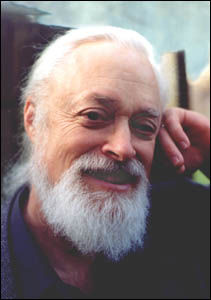- awareness of our roles in systems, inspiring system-conscious behavior
- legislative / legal constraints and channels for behavior
- conformity dynamics: social status / taboos / rewards / fashion systems
- power dynamics
- location, location, location
- cultural practices and habits
- aesthetic space, hospitable environment, beauty that speaks to the heart -- or lack of it
- support / challenge programs; self-help, mutual-aid, and answerability systems
- cultural narratives which shape and motivate what is possible, real, good
- conversations through which the past, present, and/or future are co-created
- journalism and non-fiction which increase our understanding of the real world and our relationship to it, and engage us (or not)
- structures -- physical, process, institutional, bureaucracy, etc. -- i.e., what we have to work within and through in order to live, work, move, accomplish, etc.
- economic factors -- incentives, availability, convenience, cost, pattern of needs met or not met, etc.
- leadership -- visionary, participatory, wise, etc.
- meaning -- language / metaphors / memes / perspectives / worldviews / assumptions that enable, shape, expand, contract, or impede our thinking about certain things
- technologies -- telecom, digital, sustainable, social, etc.; the availability of certain tools
- hearing, seeing, loving; respect, honoring, appreciation; permissional and dissonance-handling systems (using story, questions, reflection) which make it safe for people to be and to transform
- locality and distance (localness often helps tighten up important feedback loops)
- temporal contexts -- pace: slowness and speed, time or lack of time
- questions and inquiries -- strategic questioning, curiosity, etc.
- existence of and experience with alternatives to the status quo (e.g., Fran Peavey in India invited people from all castes and genders to her going-away party in a small space so they had to be close to each other, and told a story of MLK being inspired by Gandhi, contradicting cultural imperialism -- and they all sang We Shall Overcome)
- community, companions, colleagues, friends, networks
- organizational forms -- hierarchies, flat, networks, etc.
Friday, May 30, 2008
Context as a focus for evolutionary interventions
Peggy Holman and I have been exploring the idea that evolution is driven by the interactions of diverse entities in nurturing and challenging contexts. The focus on contexts opens an interesting inquiry: What are influence-able contexts which we can address in ways that may help catalyze positive social evolution? Here are some possible answers:
Labels:
alternatives,
community,
context,
economics,
feedback,
journalism,
laws,
leadership,
meaning,
networks,
power,
society,
structures,
support,
systems,
time
Subscribe to:
Post Comments (Atom)

No comments:
Post a Comment